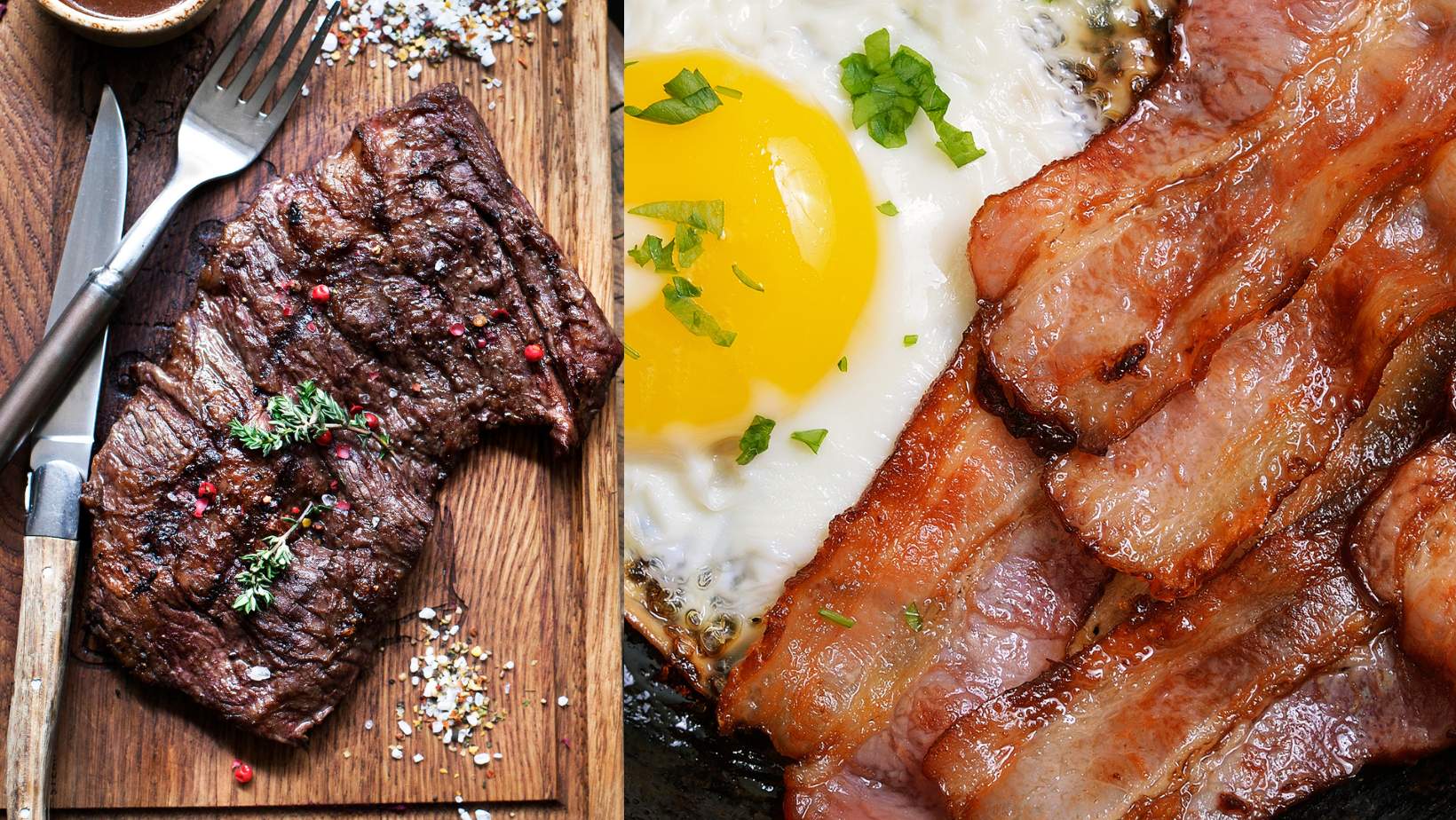If you’re one of the millions of people who have struggled to lose weight despite trying every diet under the sun, you’re not alone. But what if the solution to your frustration wasn’t another fad diet or calorie-counting app, but a radically different approach that challenges everything you thought you knew about healthy eating? Enter the carnivore diet, a zero-carb, all-animal-food eating plan that promises to melt away stubborn fat while preserving muscle mass and optimizing overall health.
The Insulin-Growth Hormone Connection
According to Dr. Michael Thompson, a board-certified family physician and proponent of the carnivore diet, the key to unlocking rapid fat loss lies in manipulating two crucial hormones: insulin and growth hormone. “Insulin is like a storage hormone,” explains Dr. Thompson. “When insulin levels are chronically elevated, your body is primed to store energy as fat rather than burn it for fuel.”
Keeping Insulin Low and Growth Hormone High
By drastically reducing carbohydrate intake, the carnivore diet aims to keep insulin levels at a minimum, allowing your body to tap into its fat stores for energy. At the same time, the high-protein nature of the diet stimulates the production of growth hormone, which helps preserve lean muscle mass and promote fat burning.
The Carnivore Diet Protocol
So what exactly do you eat on a carnivore diet? The answer is simple: animal foods, and plenty of them. “The beauty of this approach is that there’s no need to count calories or weigh your portions,” says Dr. Thompson. “You can eat as much as you want of the approved foods until you’re comfortably full.”
The Approved Food List
- Beef (ground beef, ribeye, cheaper cuts)
- Lamb and goat meat
- Eggs (chicken, duck, quail)
- Butter (preferably grass-fed)
- Organ meats (liver, heart, brain, bone marrow)
- Bacon (cured or uncured)
In addition to these staples, carnivore dieters are encouraged to drink plenty of water (still or sparkling), coffee, and tea. Salt can be used liberally to taste, but all other seasonings, sweeteners, and condiments are off-limits.
The Importance of Meal Timing
While the carnivore diet doesn’t restrict calories, it does emphasize a specific eating window. “I recommend consuming either one or two very large meals per day, within a six-hour time frame,” explains Dr. Thompson. “This allows for an 18-hour fasting period, which can further enhance the fat-burning effects of the diet.”
Adapting to a Zero-Carb Lifestyle
For those accustomed to a high-carb diet, transitioning to a carnivore approach can come with some initial challenges. “If you’re addicted to sugar or carbs, you may experience withdrawal symptoms like fatigue, headaches, and cravings in the first week or two,” warns Dr. Thompson. “But push through it, and you’ll emerge on the other side with more energy, mental clarity, and of course, rapid fat loss.”
Is the Carnivore Diet Safe Long-Term?
While the idea of subsisting solely on animal foods may sound extreme, proponents argue that it’s a sustainable way of eating for optimal health. “I’ve been following a carnivore diet for over a year now, and at age 50, I feel better than I did in my 30s,” shares Dr. Thompson. “I’ve lost stubborn fat that wouldn’t budge on other diets, and my biomarkers have all improved.”
The Importance of Electrolytes
One potential pitfall of a zero-carb diet is electrolyte imbalance, particularly in the early stages of adaptation. “Make sure you’re getting enough sodium, potassium, and magnesium, either through the approved foods or a supplement like Keto Chow electrolyte drops,” advises Dr. Thompson.
Your Carnivore Diet Questions, Answered
Can I eat dairy on the carnivore diet?
While butter is encouraged, other dairy products like milk and cheese are typically avoided due to their carbohydrate content. Some carnivore dieters may choose to include small amounts of heavy cream or hard cheeses, but it’s best to stick with the basic approved foods for optimal results.
How long should I follow the carnivore diet?
Dr. Thompson recommends trying the carnivore diet for at least one month, and up to three months, to fully experience its fat-loss potential. “After that, you can choose to continue or gradually reintroduce other healthy foods like low-carb vegetables and nuts,” he suggests.
Won’t eating so much red meat and saturated fat harm my heart health?
Contrary to popular belief, recent research has called into question the long-held assumption that saturated fat and cholesterol are the primary drivers of heart disease. “When you remove inflammatory foods like sugar and processed carbs, many people see their cardiovascular risk markers improve, even on a high-fat carnivore diet,” notes Dr. Thompson.
If you’re ready to break free from the endless cycle of yo-yo dieting and finally achieve the body composition you desire, the carnivore diet may be the unconventional solution you’ve been seeking. By prioritizing nutrient-dense animal foods and minimizing carbohydrates, you can hack your hormones for rapid fat loss while preserving your hard-earned muscle. So fire up the grill, stock up on steak, and get ready to transform your physique – one delicious bite at a time.
